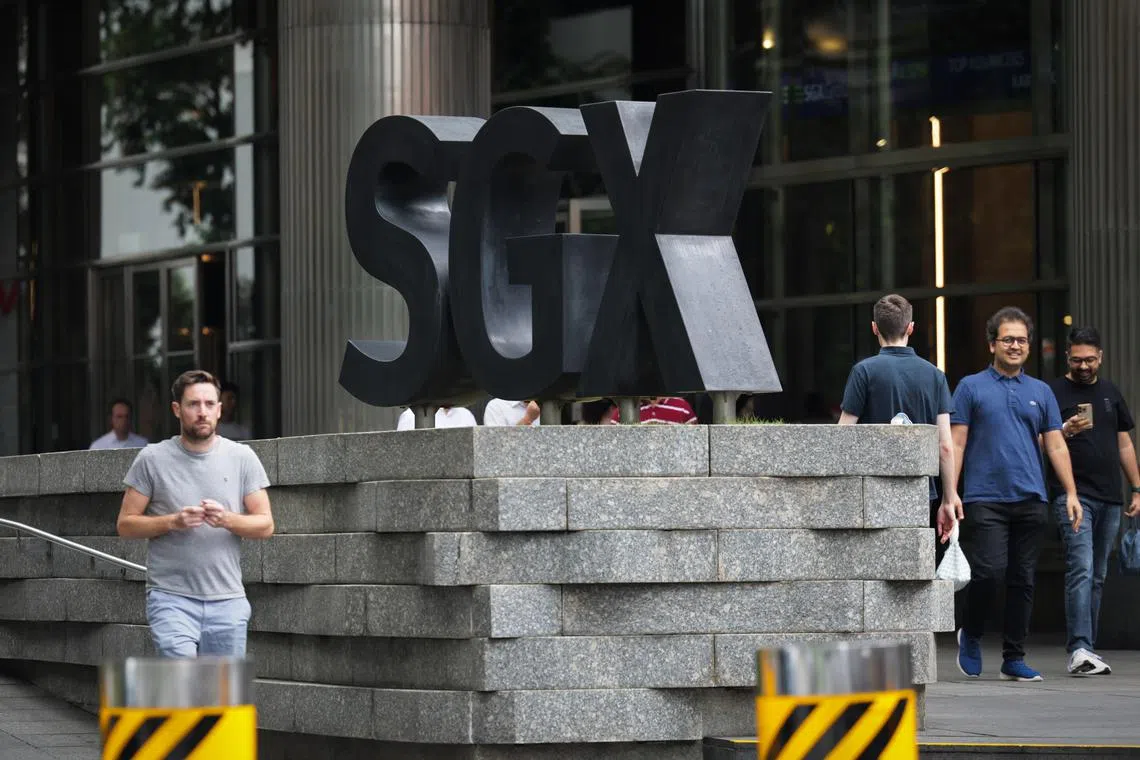Top 20 High-Yield Singapore Stocks for 2025
TL;DR
The Top 20 SG stocks by F1 (forward) dividend yield reveal high-income opportunities for investors — with yields reaching up to 9.7%. However, these are forecasts, not guarantees. Investors must understand the risks, underlying fundamentals, and broader economic landscape before chasing high-yield counters.

Singapore’s Top 20 Dividend Stocks: High Yield, But at What Risk?
In a city where the cost of living is steadily climbing, more Singaporeans are turning to dividend-paying stocks to pad their monthly income and secure a more comfortable retirement. The latest July 2025 data from OCBC Investment Research ranks the top 20 SG-listed companies by forecasted dividend yield (F1 yield). Some counters boast yields as high as 9.7% — but investors should approach with eyes wide open.
What is F1 Yield — and Why It Matters
F1 Yield is the forward-looking dividend yield, calculated using Bloomberg consensus forecasts for the next 12 months’ dividend payouts relative to current stock price. This measure is widely used by analysts to estimate potential income returns. However, it is not guaranteed.
The Top 20 SG Stocks by Forecasted Dividend Yield (July 2025)
| Company Name | Price (SGD) | F1 Yield (%) | Hist. Yield (%) |
|---|---|---|---|
| United Hampshire US REIT | 0.455 | 9.7 | 8.9 |
| Elite UK REIT | 0.315 | 9.5 | 9.7 |
| Sasseur Real Estate Investment Trust | 0.650 | 9.2 | 9.0 |
| First REIT | 0.270 | 9.1 | 8.9 |
| Stoneweg Europe Stapled Trust | 1.540 | 8.6 | 9.1 |
| ESR-REIT | 2.420 | 8.6 | 8.1 |
| Daiwa House Logistics Trust | 0.570 | 8.6 | 8.2 |
| Hutchison Port Holdings Trust | 0.174 | 8.6 | 10.6 |
| Riverstone Holdings | 0.665 | 7.5 | 5.4 |
| Bumitama Agri Ltd | 0.770 | 7.4 | 8.6 |
| First Resources | 1.500 | 7.4 | 6.6 |
| Starhill Global REIT | 0.520 | 7.3 | 6.9 |
| AIMS APAC REIT | 1.330 | 7.2 | 7.7 |
| Frasers Logistics & Comm. Trust | 0.845 | 7.1 | 7.1 |
| CapitaLand China Trust | 0.745 | 6.9 | 7.0 |
| Lendlease Global Commercial REIT | 0.525 | 6.9 | 6.8 |
| OUE Commercial REIT | 0.300 | 6.8 | 7.6 |
| CapitaLand Ascott Trust | 0.880 | 6.8 | 3.9 |
| Digital Core REIT | 0.530 | 6.7 | 6.7 |
| DBS Group Holdings | 45.990 | 6.7 | 6.5 |

Why High Yields Can Be a Red Flag
At first glance, a 9%+ yield may seem like a no-brainer, but experienced investors know better. High yields often reflect market pessimism, business model stress, or price decline due to poor fundamentals.
-
Yield = Dividend ÷ Price
A yield can spike not because the dividend increased — but because the stock price has dropped sharply, often due to negative sentiment or deteriorating fundamentals. -
Unsustainable Payouts
A high yield may indicate the company is paying out more than it earns. This is especially common when the payout ratio exceeds 100%, meaning the company is borrowing to maintain dividends, which is not sustainable. -
Business Model Stress
Companies or REITs in troubled sectors (e.g. retail, offshore marine, commercial office) often trade at lower valuations, inflating yields artificially.
What to Consider Beyond Yield
Investors should dig deeper into:
1. Payout Ratio
Is the dividend sustainable relative to earnings? A ratio above 90% may not leave room for reinvestment or buffer.
2. Debt Load
REITs often carry high leverage. Rising interest rates in Singapore (3.6% SORA as of July 2025) increase refinancing costs.
3. Occupancy Rates & Rental Reversions
For REITs, income stability depends heavily on tenant retention and renewal rates.
4. Currency Risks
Several high-yielding REITs like United Hampshire and Elite UK pay dividends in foreign currencies, exposing investors to FX volatility.

Practical Tips for Singaporean Investors
-
Diversify: Don’t rely solely on high-yield REITs. Include dividend-paying blue chips like DBS or UOB with more stable earnings.
-
Track Interest Rates: REIT performance tends to inversely correlate with rate hikes.
-
Consider SRS/CPF: Dividend stocks are a great fit for long-term passive income in retirement portfolios.
-
Use SGX Screener Tools: Tools like SGX StockFacts let you filter by yield, P/E, and more.
Final Thoughts
Dividend investing can be a powerful tool for wealth accumulation — but yield alone is not a compass. As the saying goes, “If it looks too good to be true, it probably is.”
With proper due diligence and a balanced approach, Singaporean investors can use F1 yield forecasts as a guide — but not a guarantee.
Let us know what you think about this topic, and what do you want to hear next.
This is an AI-powered article, curated by The Financial Coconut.
You can now be our community contributor and make a pitch to have your favourite personality be on our show.
Join our community group and drop us your insights on this topic.

-3.png?width=50&name=Square%20(2)-3.png)









Let us know what you think of this post